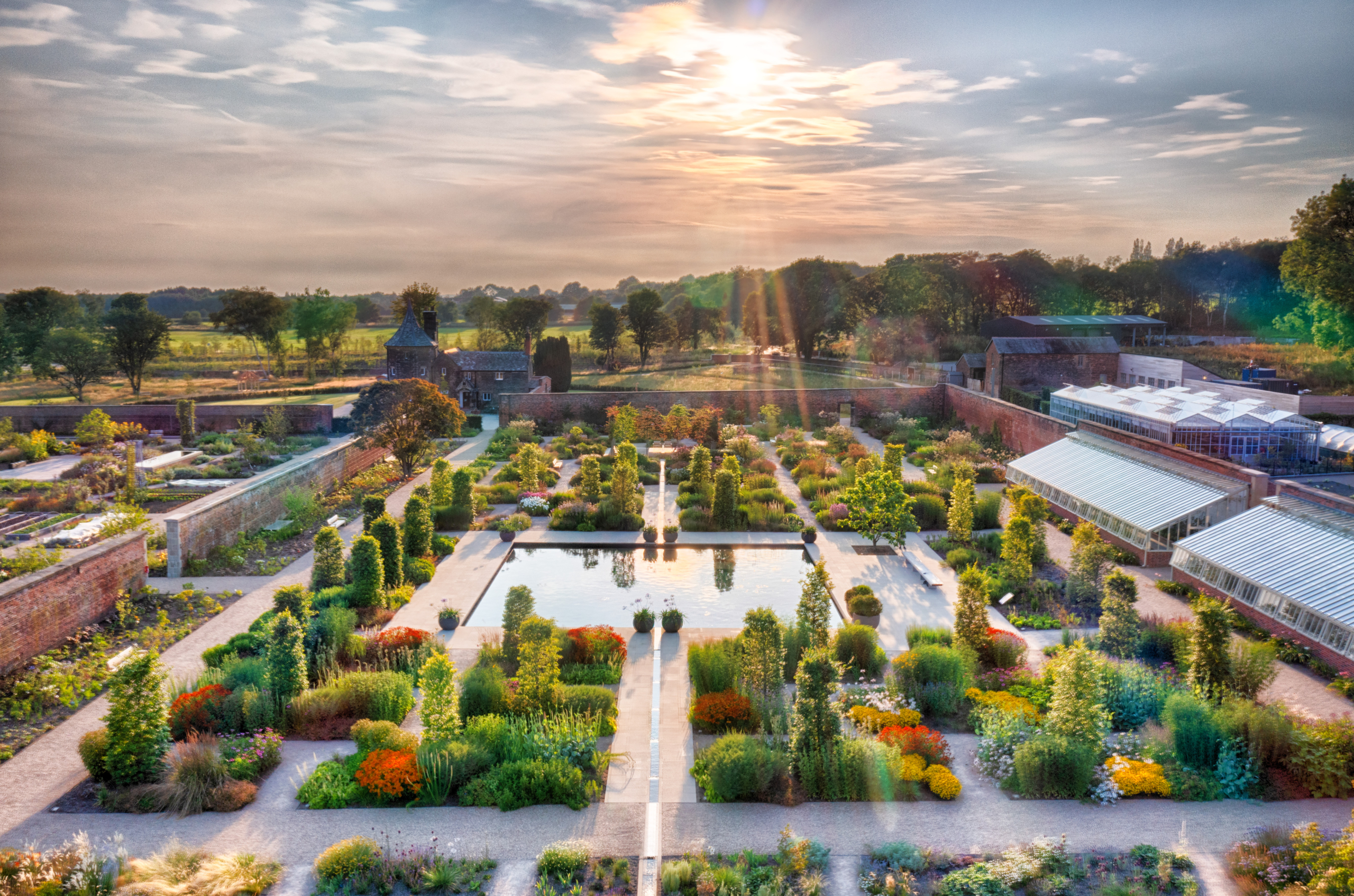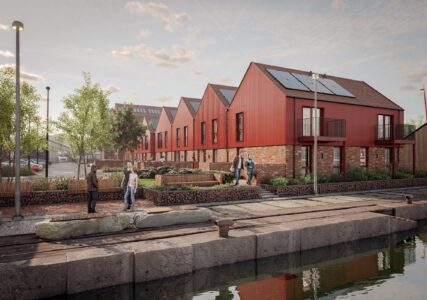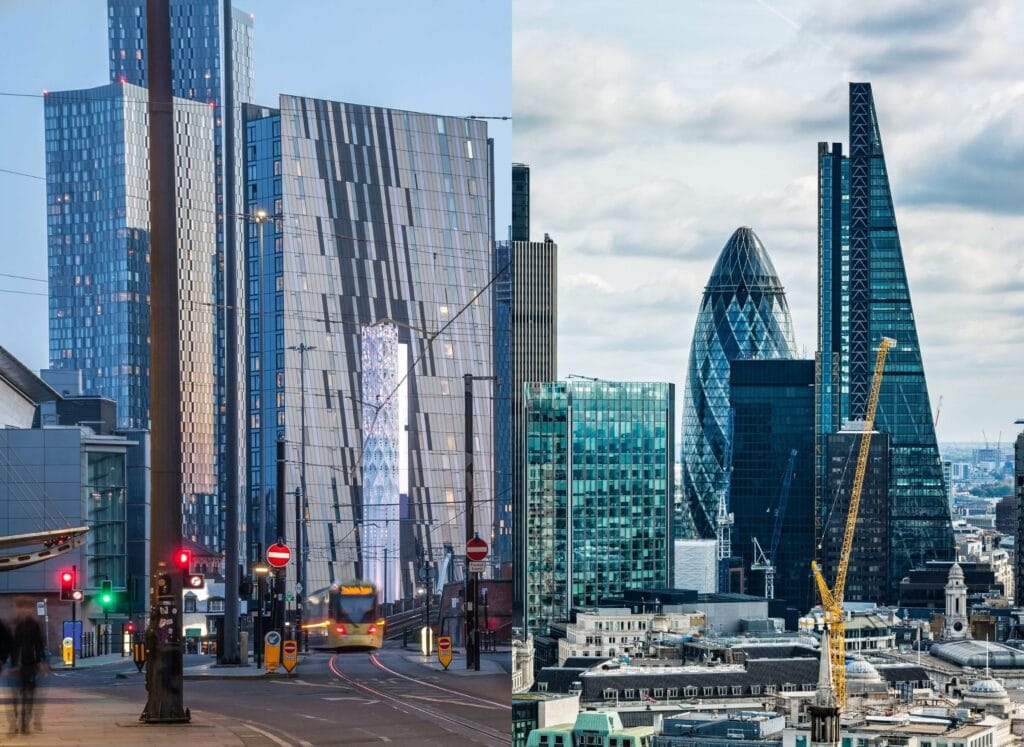Nestled in the heart of Salford, just a stone’s throw from Manchester city centre, RHS Garden Bridgewater is a remarkable testament to urban regeneration and community enrichment. This 154-acre garden, which opened its doors in May 2021, has transformed once unused land into a vibrant green space that offers numerous social, economic, and environmental benefits. In this article, we explore the proximity of RHS Bridgewater to Manchester city centre, its social impact on the local community, job creation, and the regeneration of the area.
Proximity to Manchester City Centre
RHS Bridgewater is conveniently located in Worsley, Salford, approximately 9 miles from Manchester city centre. This prime location makes it easily accessible for both residents and visitors. The garden is well-connected by various modes of transport, ensuring a hassle-free journey.
- By Car: The drive from Manchester city centre to RHS Bridgewater takes around 13 minutes, making it a quick and convenient trip for those with access to a vehicle.
- By Bus: Public transport options are also available, with direct bus services departing from St James Square in Manchester and arriving at Longwall Avenue, close to the garden. The bus journey takes approximately 27 minutes.
- By Train and Bus: For those preferring a combination of train and bus, the journey involves taking a train to a nearby station followed by a short bus ride, totalling around 46 minutes.
This excellent connectivity ensures that RHS Bridgewater is within easy reach for a wide audience, enhancing its appeal as a destination for relaxation and recreation.
Social Impact on the Local Community
RHS Bridgewater has had a profound social impact on the local community, providing a sanctuary for residents and promoting health and wellbeing through its various initiatives.
- Community Wellbeing Garden: One of the standout features of RHS Bridgewater is the Community Wellbeing Garden, the first permanent garden created by the RHS with health and wellbeing at its core. This garden serves as a sanctuary for local communities, offering a space for relaxation, social interaction, and therapeutic gardening activities.
- Social Prescribing: The garden is pioneering a social prescribing project, where local residents are referred by their doctors to participate in therapeutic gardening activities. This initiative aims to improve mental and physical health by engaging individuals in nature-based activities, reducing stress, and promoting a sense of accomplishment.
- Educational Programmes: RHS Bridgewater also offers educational programmes for schools and community groups, fostering a love for gardening and nature among young people. These programmes provide hands-on learning experiences and promote environmental awareness.
The garden’s focus on community wellbeing and education has made it a valuable resource for local residents, enhancing their quality of life and fostering a sense of community.
Job Creation and Economic Impact
The development of RHS Bridgewater has brought significant economic benefits to the local area, creating jobs and stimulating local businesses.
- Job Creation: The project has created over 140 jobs within the garden and an additional 180 jobs in the local economy. These positions range from horticultural roles to customer service and educational outreach, providing diverse employment opportunities for local residents.
- Training and Volunteering: RHS Bridgewater offers training and apprenticeship programmes, allowing individuals to gain valuable skills and experience in horticulture. The garden also relies on volunteers, who contribute to its maintenance and operations while benefiting from the opportunity to learn and engage with the community.
- Local Investment: The initial direct investment in the garden was £30 million, with an estimated annual contribution of £13.8 million to the local economy by 2029. This investment has not only funded the development of the garden but also supported local suppliers and businesses.
The economic impact of RHS Bridgewater extends beyond job creation, contributing to the overall prosperity and development of the Salford area.
Regeneration of Once Unused Land
The transformation of the historic Worsley New Hall estate into RHS Bridgewater is one of the largest gardening projects undertaken in Europe in recent years. This ambitious project has revitalised a once neglected and unused piece of land, turning it into a thriving green space that benefits both people and the environment.
- Restoration of Historic Features: The project involved the restoration of several historic features, including the 11-acre Walled Kitchen Garden, the tree-lined Garden Approach, and the Lost Terraces. These restorations have preserved the heritage of the site while creating beautiful and functional spaces for visitors to enjoy.
- Sustainable Practices: RHS Bridgewater is committed to sustainability, incorporating environmentally friendly practices in its design and operations. The garden features rainwater harvesting systems, composting facilities, and a focus on biodiversity, ensuring that it contributes positively to the environment.
- Green Spaces and Biodiversity: The garden includes a variety of green spaces, such as woodlands, meadows, and lakes, which provide habitats for wildlife and promote biodiversity. These natural areas offer visitors the opportunity to connect with nature and enjoy the tranquillity of the outdoors.
The regeneration of RHS Bridgewater has not only created a stunning garden but also contributed to the environmental sustainability and ecological health of the area.
RHS Bridgewater is a shining example of urban regeneration, transforming once unused land into a vibrant green space that offers numerous social, economic, and environmental benefits. Its proximity to Manchester city centre makes it easily accessible, while its focus on community wellbeing, job creation, and sustainability ensures that it has a lasting positive impact on the local area.
As one of Manchester’s hidden gems, RHS Bridgewater provides a sanctuary for residents and visitors alike, promoting health, wellbeing, and a love for nature. The garden’s success is a testament to the power of urban regeneration and the importance of creating green spaces that enrich our communities and environment.









